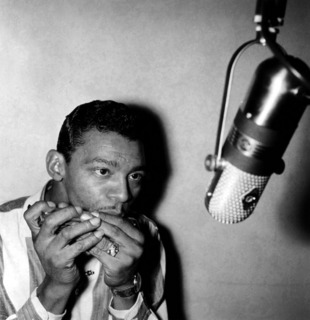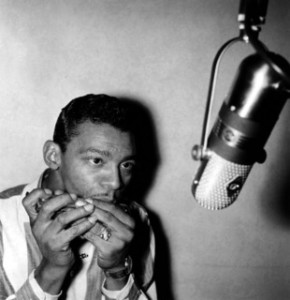
Podcast: Play in new window | Download
Subscribe: RSS
 May 1, 2014 – Segment 1
May 1, 2014 – Segment 1
Marc looks at some of the events that happened on this day in history, including the Haymarket riots for the 8 hour day that led to May First becoming International Workers’ Day, the birth of blues harmonica player Little Walter, and the death of Czech composer Antonín Dvořák.
EVENTS
1328 – Wars of Scottish Independence end: By the Treaty of Edinburgh-Northampton the Kingdom of England recognises the Kingdom of Scotland as an independent state.
1707 – The Act of Union joins the Kingdom of England and Kingdom of Scotland to form the Kingdom of Great Britain.
1776 – Establishment of the Illuminati in Ingolstadt (Upper Bavaria), by Jesuit-taught Adam Weishaupt.
1785 – Kamehameha I, the king of Hawaiʻi, defeats Kalanikupule and establishes the Kingdom of Hawaiʻi.
1786 – In Vienna, Austria, Mozart’s the opera The Marriage of Figaro is performed for the first time.
1844 – Hong Kong Police Force, the world’s second modern police force and Asia’s first, is established.
1862 – American Civil War: The Union Army completes the Capture of New Orleans.
1863 – Confederate congress passed resolution which branded Black troops and their officers criminals. Resolution, in effect, doomed captured Black soldiers to death or slavery.
1866 – A tragic race riot took place in Memphis, Tennessee. Forty-eight people, mostly black, were killed. Negro veterans were special targets, and at least five black women were raped during the disturbances. Schools and churches were burned.
1867 – Howard University,in Washington, D.C. named for General Oliver O. Howard, opened.
1884 – Proclamation of the demand for eight-hour workday in the United States.
1884 – Moses Fleetwood Walker becomes the first black person to play in a professional baseball game in the United States.
1886 – Rallies are held throughout the United States demanding the eight-hour work day, culminating in the Haymarket Affair in Chicago, in commemoration of which May 1 is celebrated as International Workers’ Day in many countries.
1900 – The Scofield mine disaster kills over 200 men in Scofield, Utah in what is to date the fifth-worst mining accident in United States history.
1915 – The RMS Lusitania departs from New York City on her two hundred and second, and final, crossing of the North Atlantic. Six days later, the ship is torpedoed off the coast of Ireland with the loss of 1,198 lives, including 128 Americans, rousing American sentiment against Germany.
1925 – The All-China Federation of Trade Unions is officially founded. Today it is the largest trade union in the world, with 134 million members. 1930 – The dwarf planet Pluto is officially named.
1931 – The Empire State Building is dedicated in New York City.
1933 – The Humanist Manifesto I published.
1940 – The 1940 Summer Olympics are cancelled due to war.
1941 – Asa Philip Randolph issued a call for 100,000 Blacks to march on Washington, D.C., to protest discrimination in the armed forces and war industries.
1944 – Two hundred Communist prisoners are shot by the Germans at Kaisariani in Athens in reprisal for the killing of General Franz Krech by partisans at Molaoi.
1945 – World War II: A German newsreader officially announces that Adolf Hitler has “fallen at his command post in the Reich Chancellery fighting to the last breath against Bolshevism and for Germany”. The Soviet flag is raised over the Reich Chancellery, by order of Stalin.
1945 – World War II: Joseph Goebbels and his wife Magda commit suicide in the Reich Garden outside the Führerbunker. Their children are murdered by Magda by having cyanide pills inserted into their mouths. 1945 – The Yugoslav partisans free Trieste.
1946 – Start of three year Pilbara strike of Indigenous Australians.
1946 – The Paris Peace Conference concludes that the islands of the Dodecanese should be returned to Greece by Italy.
1947 – Portella della Ginestra massacre against May Day celebrations in Sicily by the bandit and separatist leader Salvatore Giuliano; 11 persons are killed and 33 wounded.
1948 – The Democratic People’s Republic of Korea (North Korea) is established, with Kim Il-sung as leader.
1950 – Guam is organized as a United States commonwealth.
1956 – The polio vaccine developed by Jonas Salk is made available to the public.
1961 – The Prime Minister of Cuba, Fidel Castro, proclaims Cuba a socialist nation and abolishes elections.
1970 – Protests erupt in Seattle, Washington, following the announcement by U.S. President Richard Nixon that U.S. Forces in Vietnam would pursue enemy troops into Cambodia, a neutral country.
1971 – Amtrak (the National Railroad Passenger Corporation) takes over operation of U.S. passenger rail service.
1974 – The Argentine terrorist organization Montoneros is expelled from Plaza de Mayo by president Juan Perón.
1977 – Thirty-six people are killed in Taksim Square, Istanbul, during the Labour Day celebrations.
1987 – Pope John Paul II beatifies Edith Stein, a Jewish-born Carmelite nun who was gassed in the Nazi concentration camp at Auschwitz.
1991 – Rickey Henderson of the Oakland Athletics steals his 939th base, making him the all-time leader in this category. However, his accomplishment is overshadowed later that evening by Nolan Ryan of the Texas Rangers, when he pitches his seventh career no-hitter, breaking his own record.
2001 – Philippine President Gloria Macapagal-Arroyo declares the existence of “a state of rebellion”, hours after thousands of supporters of her arrested predecessor, Joseph Estrada, storm towards the presidential palace at the height of the EDSA III rebellion.
2003 – 2003 invasion of Iraq: In what becomes known as the “Mission Accomplished” speech, on board the USS Abraham Lincoln (off the coast of California), U.S. President George W. Bush declares that “major combat operations in Iraq have ended”.
2004 – Cyprus, Czech Republic, Estonia, Hungary, Latvia, Lithuania, Malta, Poland, Slovakia, and Slovenia join the European Union, celebrated at the residence of the Irish President in Dublin.
2006 – The Puerto Rican government closes the Department of Education and 42 other government agencies due to significant shortages in cash flow.
2007 – The Los Angeles May Day mêlée occurs, in which the Los Angeles Police Department’s response to a May Day pro-immigration rally become a matter of controversy.
2009 – Same-sex marriage is legalized in Sweden.
2011 – Pope John Paul II is beatified by his successor, Pope Benedict XVI. 2011 – Barack Obama announces that Osama bin Laden, the suspected mastermind behind the September 11 attacks has been killed by United States special forces in Abbottabad, Pakistan. Due to the time difference between the United States and Pakistan, bin Laden was actually killed on May 2.
BIRTHS
1852 – Calamity Jane, American scout (d. 1903)
1862 – Marcel Prévost, French author and playwright (d. 1941)
1916 – Glenn Ford, Canadian-American actor (d. 2006)
1918 – Jack Paar, American comedian, author and talk show host (d. 2004)
1919 – Lewis Hill, American pacifist, co-founded Pacifica Radio (d. 1957)
1923 – Joseph Heller, American author and playwright (d. 1999)
1923 – Milan Kangrga, Croatian Serb philosopher (d. 2008)
1924 – Terry Southern, American author and screenwriter (d. 1995)
1930 – Little Walter, American harmonica player (d. 1968)
1939 – Judy Collins, American singer-songwriter and guitarist
1945 – Rita Coolidge, American singer
1946 – John Woo, Hong Kong director, producer, and screenwriter
1951 – Sally Mann, American photographer
1969 – Wes Anderson, American director, producer, and screenwriter
DEATHS
1731 – Johann Ludwig Bach, German violinist and composer (b. 1677)
1904 – Antonín Dvořák, Czech composer (b. 1841)
1945 – Joseph Goebbels, German politician, Chancellor of Germany (b. 1897)
1945 – Magda Goebbels, German wife of Joseph Goebbels (b. 1901)
1965 – Spike Jones, American singer and bandleader (b. 1911)
1989 – Sally Kirkland, American journalist (b. 1912)
Sources: The People History; This Day in Labor History; Wikipedia List of Historical Anniversaries; This Day in Women’s History; This Day in African History;History.com; History Orb; Yenoba; Selected Black Facts; Phil Konstantin’s North American Indian History; and This Day in Music




